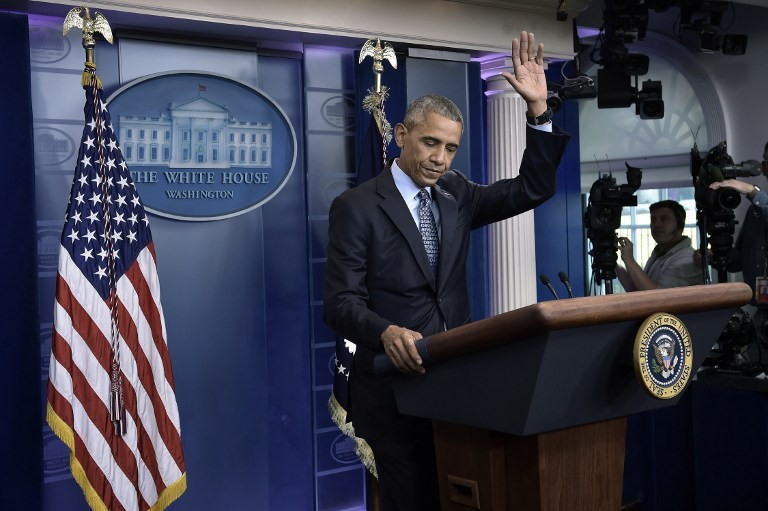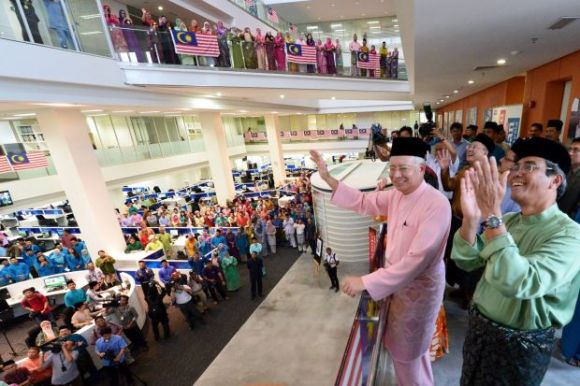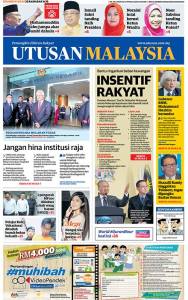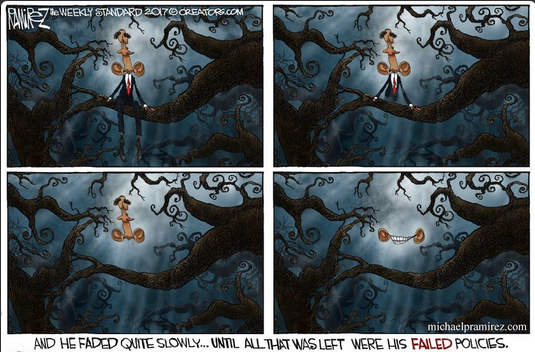Barack Obama’s remarks to the White House press corps at his last press conference as president of the United States, Jan 18, 2017
We have travelled the world together. We did a few singles, a few doubles together. I’ve offered advice that I thought was pretty sound, like don’t do stupid stuff. (Laughter)
And even when you complained about my long answers, I just want you to know that the only reason they were long was because you asked six-part questions. (Laughter)

But I have enjoyed working with all of you. That does not, of course, mean that I’ve enjoyed every story that you have filed, but that’s the point of this relationship. You’re not supposed to be sycophants, you’re supposed to be sceptics, you’re supposed to ask me tough questions. You’re not supposed to be complimentary, but you’re supposed to cast a critical eye on folks who hold enormous power and make sure that we are accountable to the people who sent us here, and you have done that.
And you have done it for the most part in ways that I could appreciate for fairness, even if I didn’t always agree with your conclusions. And having you in this building has made this place work better. It keeps us honest, it makes us work harder. You have made us think about how we are doing what we do and whether or not we’re able to deliver on what’s been requested by our constituents. And for example, every time you’ve asked why haven’t you cured Ebola yet or why is there still that hole in the Gulf, it has given me the ability to go back and say, “Will you get this solved before the next press conference?” (Laughter)
I spent a lot of time on my — in my farewell address talking about the state of our democracy. It goes without saying that essential to that is a free press. That is part of how this place, this country, this grand experiment of self-government has to work. It doesn’t work if we don’t have a well-informed citizenry, and you are the conduit through which they receive the information about what’s taking place in the halls of power.
 So America needs you and our democracy needs you. We need you to establish a baseline of facts and evidence that we can use as a starting point for the kind of reasoned and informed debates that ultimately lead to progress. And so my hope is is that you will continue with the same tenacity that you showed us, to do the hard work of getting to the bottom of stories and getting them right and to push those of us in power to be the best version of ourselves and to push this country to be the best version of itself.
So America needs you and our democracy needs you. We need you to establish a baseline of facts and evidence that we can use as a starting point for the kind of reasoned and informed debates that ultimately lead to progress. And so my hope is is that you will continue with the same tenacity that you showed us, to do the hard work of getting to the bottom of stories and getting them right and to push those of us in power to be the best version of ourselves and to push this country to be the best version of itself.
I have no doubt that you will do so, I’m looking forward to being an active consumer of your work, rather than always the subject of it. I want to thank you all for your extraordinary service to our democracy.
It is true that behind closed doors, I curse more than I do publicly… (Laughter)
… and sometimes I get mad and frustrated like everybody else does, but at my core, I think we’re going to be OK. We just have to fight for it, we have to work for it and not take it for granted and I know that you will help us do that. Thank you very much, Press Corps, good luck.
![Thank you very much, press corps. Good luck. [AFP/Getty]](https://img.washingtonpost.com/rf/image_480w/2010-2019/WashingtonPost/2017/01/19/National-Politics/Images/AFP_K49ND-3661.jpg)
Thank you very much, press corps. Good luck. [AFP/Getty]
Full transcript | New York Times








 So America needs you and our democracy needs you. We need you to
So America needs you and our democracy needs you. We need you to ![Thank you very much, press corps. Good luck. [AFP/Getty]](https://img.washingtonpost.com/rf/image_480w/2010-2019/WashingtonPost/2017/01/19/National-Politics/Images/AFP_K49ND-3661.jpg)

